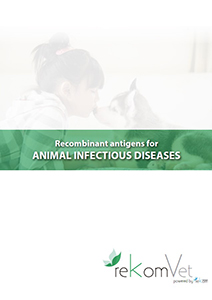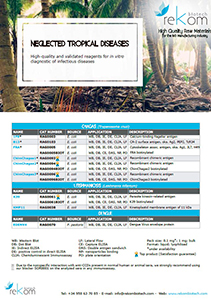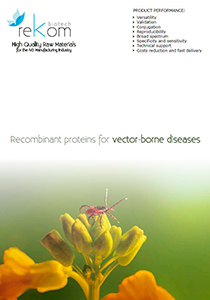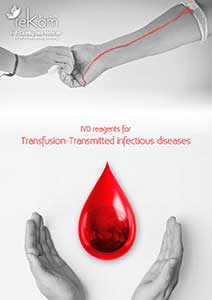Leishmaniasis
Leishmaniasis (or Leishmaniosis) is a vector-borne disease caused by the parasitic protozoan of the genus Leishmania, with more than 20 known pathogenic species. It is among one of the 20 neglected tropical diseases. This zoonotic nature disease can affect humans, dogs and cats. Some wild animals act as asymptomatic carriers of the parasite and, therefore, being its reservoirs. The transmission of the disease is carried out through the bite of infected female sandfly mosquitoes. This infection can also be transmitted by blood transfusions. Leishmaniasis can present different clinical manifestations: skin lesions, mucosal lesions and visceral infections. The most common symptoms of skin infections are sores, difficulty breathing and swallowing, and stuffy, runny, or bleeding nose. It is the most frequent form, leaving scars for life and can even cause serious disabilities. Mucosal infections begin as a reaction to the sting that then spreads to the mucous membranes, potentially destroying them partially or completely, and even leading to death. Visceral infection affects the entire body, and can lead to fatal complications. Symptoms are cough, fever, vomiting diarrhea, scaly feet, thinning hair and weight loss. The most common treatment are those compounds that contain ammonium, and as a prevention it is recommended to avoid mosquito bites. The diagnosis of Leishmaniasis is made by biopsy and culture of the spleen, bone marrow, liver, lymph nodes, or skin, direct agglutination test, PCR, detection of antibodies, complete blood count, and detection of serum albumin, immunoglobulin, or protein.
It is estimated that each year there are between 700,000 and 1 million new cases of human Leishmaniasis. 95% of cases of human cutaneous Leishmaniasis take place in America, the Mediterranean basin, the Middle East and Central Asia. 90% of the cases of human mucocutaneous Leishmaniasis take place in Bolivia, Brazil, Ethiopia and Peru. Visceral leishmaniasis is one of the main parasitic diseases with the capacity to cause outbreaks and deaths, and is found in tropical and subtropical areas. If left untreated, it is fatal in more than 95% of cases, and is caused exclusively by the L. donovani complex. This complex is composed of 3 species: L. donovani, L. infantum and L. chagasi. The species L. infantum (so named in the ancient world) is the same as L. chagasi (so named in the new world), and the species L. donovani is very similar. Specifically, the protein K39 has 100% identity with L. infantum/L.Chagasi and 93% with L. donovani.
Although it has been shown that dogs can be infected by at least twelve different species of Leishmania, the most important aetiological agent of canine leishmaniasis is Leishmania infantum. The dog is the species most predisposed to infection by L. infantum, and is the species in which clinical signs are most severe. Canine Leishmaniasis is present in approximately fifty countries in the world, with a particularly high prevalence in the Mediterranean region and in regions of South America. Leishmaniasis is less well known in cats. However, epidemiological studies have confirmed that feline infections are not rare, and that the incidence of this disease may be underestimated in endemic areas.
Human and animal infectious disease (mainly dogs and cats)
At Rekom Biotech, we desing and manufacture IVD reagents for diagnosis of Leishmaniasis. If you do not find what you are looking for, you can request our custom-made recombinant proteins/antibodies service. Do not hesitate to contact us!
How to reconsitute lyophizated vials
Recombinant antigens for the diagnosis of Leishmaniasis






